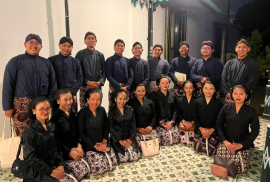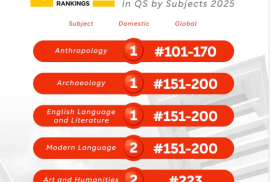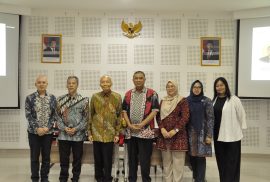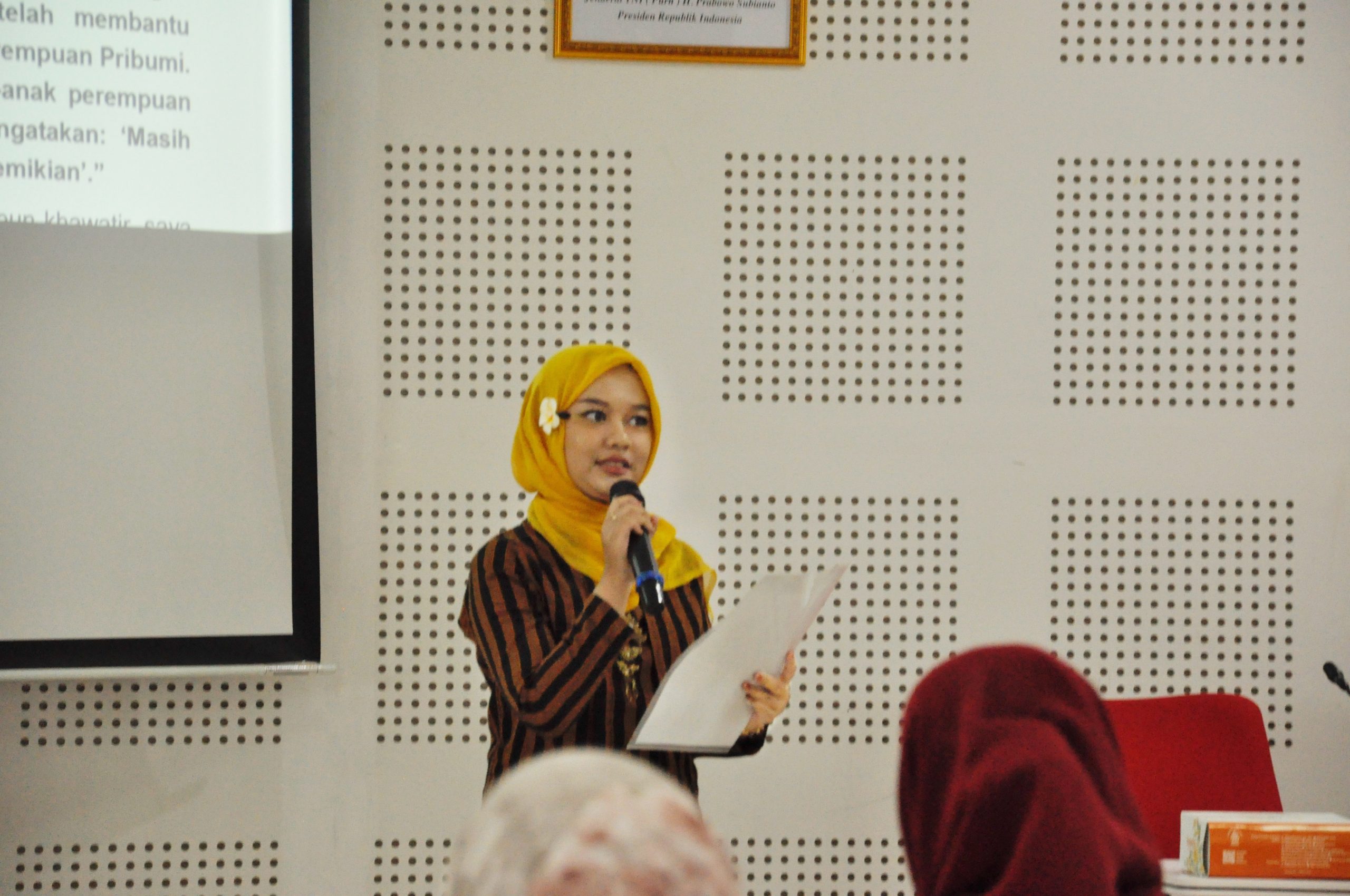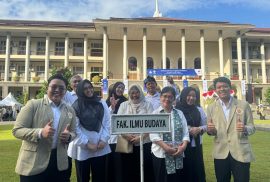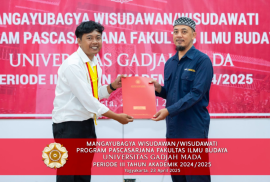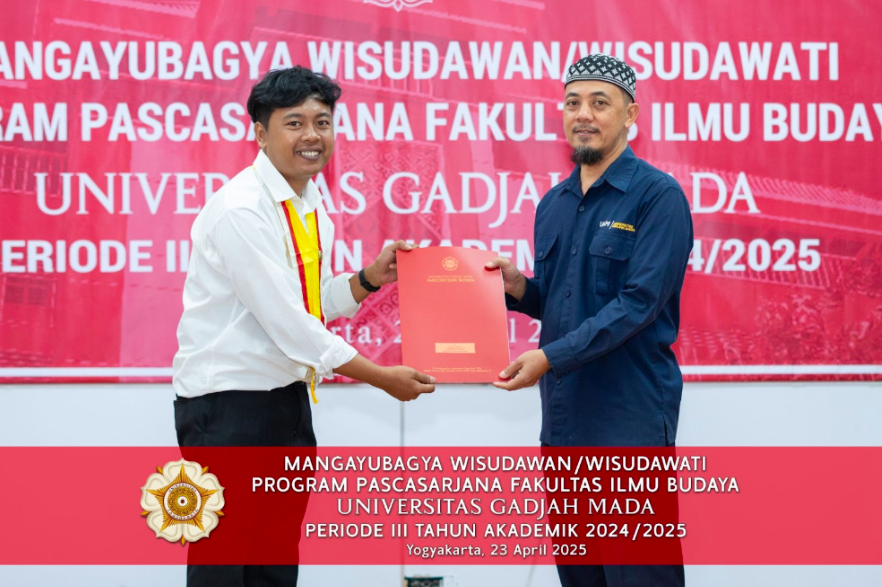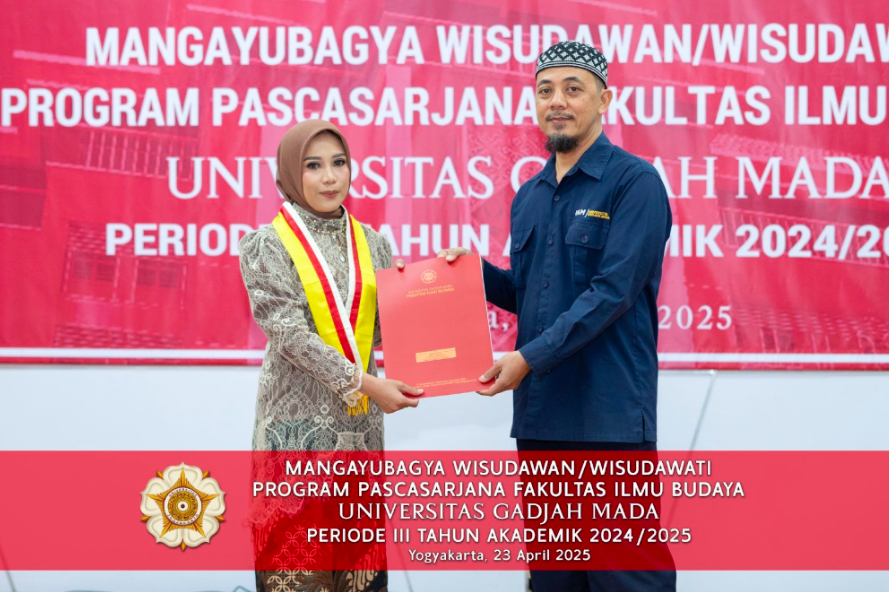Yogyakarta, 5/5/2025 — On Monday, April 21, 2025, a number of students from the Department of Javanese Language, Literature, and Culture, Faculty of Cultural Sciences, Universitas Gadjah Mada (UGM), attended a cultural event titled Uyon-Uyon Hadiluhung Senen Pon held at the Kagungan Dalem Bangsal Kasatriyan of the Karaton Ngayogyakarta Hadiningrat (Yogyakarta Palace). The event was part of the ceremonial commemoration of the birthday (wiyosan dalem) of Sri Sultan Hamengku Bawana X, which falls on Monday Pon evening, or the eve of Tuesday Wage according to the Javanese calendar.
During this meaningful occasion, the classical and sacred dance Bedhaya Prabhu Wibawa was performed again after more than two decades of absence. According to the official website of the Yogyakarta Palace, Kratonjogja.id (2025, April 21), Bedhaya Prabhu Wibawa is a sacred dance that tells the story of Sri Sultan Hamengku Buwana IX’s resistance against Dutch colonial rule, particularly during the historic 1 March General Offensive. The dance was first performed on July 27, 2002, with a duration of approximately 60 minutes, and its revival this year marks the 23rd anniversary since its premiere.
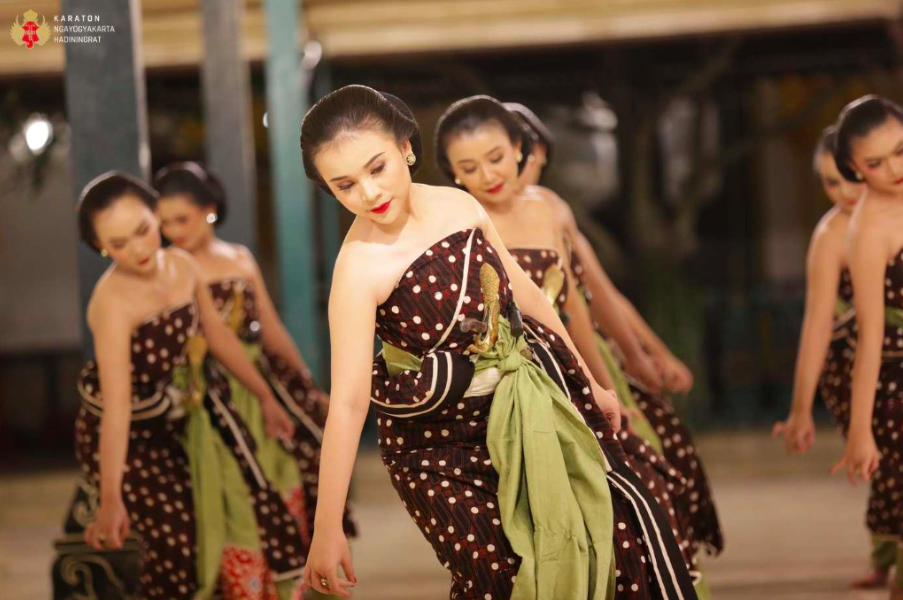
The Bedhaya Prabhu Wibawa Dance. Fully quoted from Kratonjogja.id (2025, April 21), from https://www.kratonjogja.id/peristiwa/1388-uyon-uyon-hadiluhung-senin-pon-21-april-2025/.
This rare cultural moment did not go unnoticed by the students. Dressed in full traditional Javanese attire, they showed respect for the cultural values upheld by the Palace. One of the attending students, Fega Achillea Maydena, shared her profound impression of the event. “I was absolutely thrilled. Somehow, the Palace always manages to create a magical, beautiful, and exceptional atmosphere,” she said during an online interview on Tuesday, April 22, 2025. She also remarked that the grandeur of the Palace, the solemnity of the Bedhaya Prabhu Wibawa dance, and the deeply rooted traditional ambiance made for an unforgettable cultural experience.
More than just an artistic performance, the Bedhaya Prabhu Wibawa dance carries moral messages and nationalistic values. It seems to invite the audience to emulate the spirit of resistance, bravery, and patriotism exemplified by national historical figures.
The participation of students and young people in events like this reflects a genuine commitment to nguri-uri (preserving) and ngurip-urip (revitalizing) Javanese culture. Culture is not merely a spectacle, but also a guide and a structure for life—one that is hoped to nurture future generations who love their ancestral heritage and are ready to contribute to the progress and well-being of the nation.
[Humas Javanese Language, Literature, and Culture, Haryo Untoro]
Reference
Kratonjogja.id. (2025, April 21). Uyon-Uyon Hadiluhung Senin Pon 21 April 2025. Accessed April 22, 2025, from https://www.kratonjogja.id/peristiwa/1388-uyon-uyon-hadiluhung-senin-pon-21-april-2025/
Image Source
Kratonjogja.id. (2025, April 21). Uyon-Uyon Hadiluhung Senin Pon 21 April 2025. [Image]. https://www.kratonjogja.id/peristiwa/1388-uyon-uyon-hadiluhung-senin-pon-21-april-2025/

